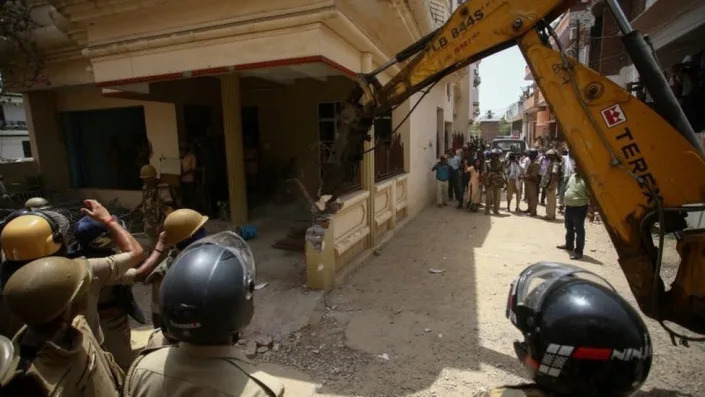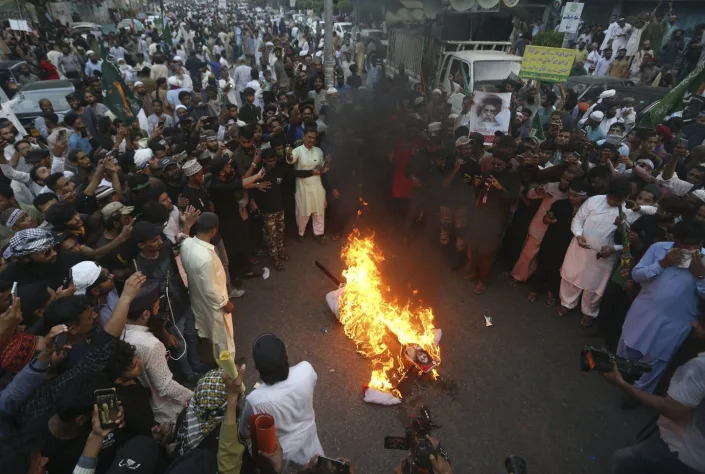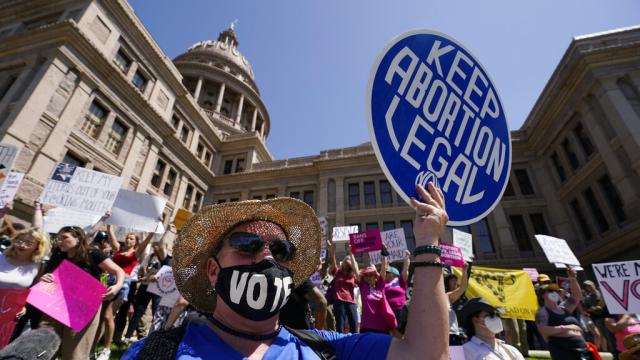It’s been over a year since the American workplace turned upside down, with employees quitting en masse in search of more fulfilling jobs and flexible work arrangements.
But as inflation hits a 40-year high, stragglers have found yet another convincing reason to jump ship.
“It’s a worker’s market,” says Andrew Flowers, labor economist at job advertisement firm Appcast. “And this bargaining power, it means that, with high inflation, this is the time to either ask for a raise or to potentially find a better offer elsewhere.”
Another 4.4 million Americans quit their jobs in April, the latest numbers show, nearly unchanged from the month before and still among the highest levels in decades.
While job vacancies decreased, there remain almost two jobs available for every worker who’s looking.
With the rising cost of food, gas and everything else giving all Americans a pay cut, workers who haven’t yet made a move have every reason — and every opportunity — to act soon.
The window remains open for now
The consumer price index surged to a spectacular 8.6% in May from a year earlier, putting pressure on workers who would otherwise be happy with the status quo.
Globally, one in five employees is likely to switch jobs in the next year, with most leaving for a better salary, according to a recent survey by accountancy firm PricewaterhouseCoopers.
Over a third are planning to ask for a raise in the next year, though that number is significantly higher in the tech sector (44%) and lower in the public sector (25%).
“Employers know that quit rates are high. They know that job openings are plentiful. And so they know their employees can be choosier,” Flowers says.
The added pressure of rising prices means employers may consider proactively hiking wages to avoid losing employees. Wages and salaries in the private sector increased by 5% for the 12-month period ending in March.
“Employers have a really insatiable appetite at the moment to hire,” Flowers says.
However, he adds, it’s unclear how long the labor market will remain so tight, especially as the Federal Reserve raises interest rates to cool off the economy.
How to go about asking for a raise
Whether or not it’s a good time for you to request a raise can really depend on your industry and whether your organization is thriving, says Chelsea Jay, a career coach based in Lansing, Michigan.
The accommodation and food services and leisure and hospitality sectors have seen the highest quit rates, reports Harvard Business Review, while retail and non-durable manufacturing industries have experienced the most growth in their quit rates. Workers in professional and business services are also leaving in droves.
Flowers says it’s fair to bring up rising prices when asking for a raise, though Jay argues that shouldn’t be the focus of the conversation.
“You can talk about inflation — but more than inflation, I encourage professionals to talk about their skill set and what they have brought to the organization,” says Jay.
She recommends talking to your coworkers about your salaries and doing research within your company, industry, city, state and career level. It’s also a good idea to look into when your company typically gives out raises and bring an estimate to the table at that time.
Nearly half of workers who tried to renegotiate their salary last year were successful, a survey by the job search site FlexJobs found.
What if you can’t get a raise?
If your request is denied, consider renegotiating your benefits. You can look into a hybrid working arrangement or more paid time off, or ask your employer to pay for a professional development opportunity, like a certification course.
That said, Jay warns against relying on short-term handouts, like retention bonuses.
“It's a Band-Aid to cover up the bigger issue,” she says. “Companies don't give bonuses every single year. So if you are not happy with your salary, either you need to get a raise from them, or you need to move on to a company that is willing to pay you right.”
She adds that everyone’s priorities are different, and you need to determine what’s most important to you if you decide to seek work elsewhere. In your interview with a potential employer, ask about the company culture, leadership, expectations of your role and the benefits and perks you’re interested in.
“Don't settle. You're in a time where you do not have to settle anymore,” she says.
What can employers do to retain talent?
Employers may see higher retention when they promote from within, Flowers emphasizes.
“It's one thing to say, ‘Hey, I'm going to leave this job and get a 10% raise elsewhere.’ But if a worker sees that they have a future and that they can move up the ladder through internal mobility … then maybe they won't just go take the highest offer.”
Jay also advises employers to give quitting employees the space to be transparent about why they’re leaving in their exit interviews.
It’s important that companies actively respond to feedback by implementing new policies and making changes to avoid losing even more workers in the future.
“[The Great Resignation] really shone a light on the issues that corporate America and these companies are having when it comes to the way that they treat their employees and how they show value and how they show respect,” says Jay.
“So if anything, what it did for a lot of companies was made them realize, hey, we're slipping in these areas. We need to step our game up here.”
This article provides information only and should not be construed as advice. It is provided without warranty of any kind.

























